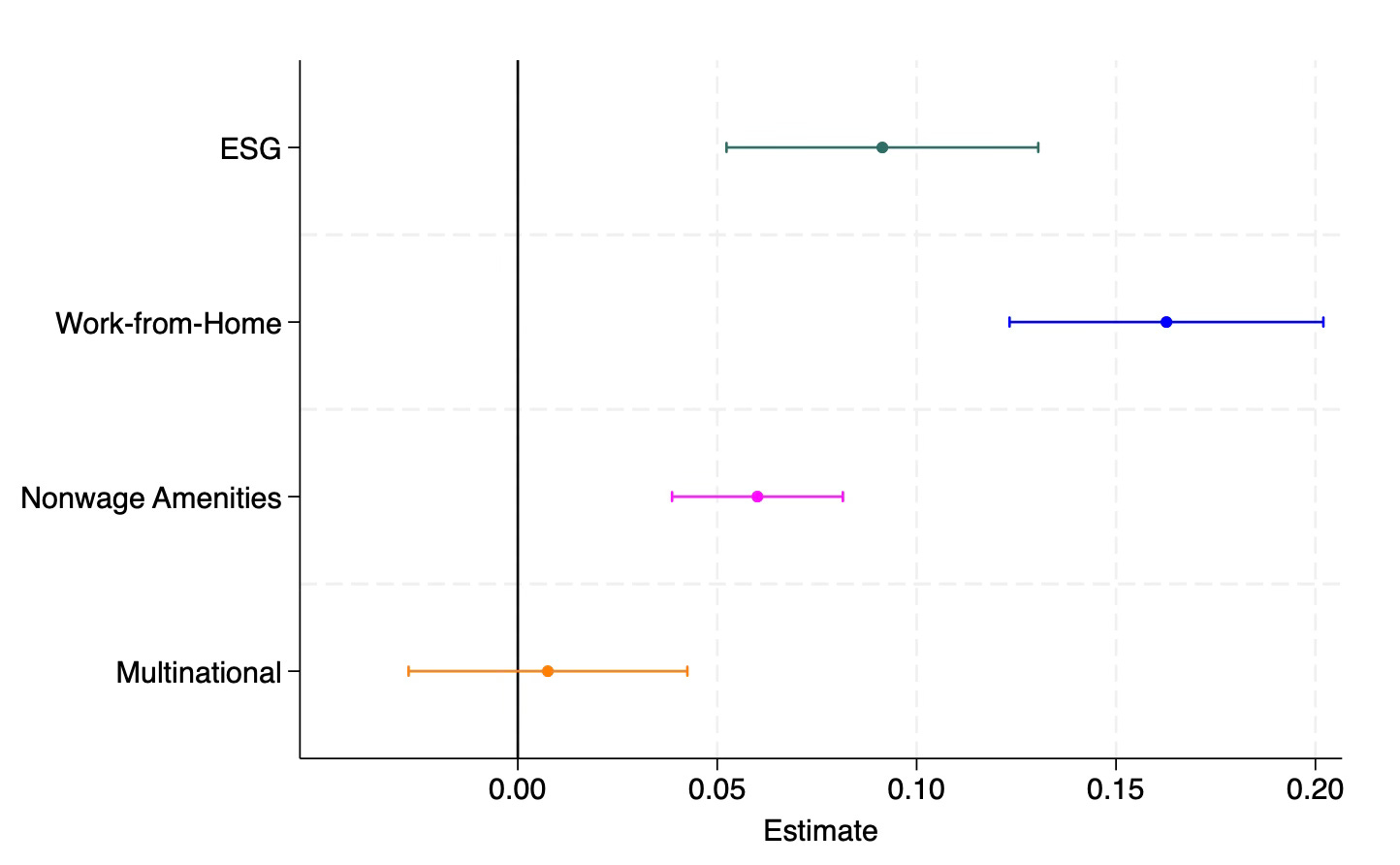We live in a world where costs for most companies are driven by the wages they pay their employees. And employees – especially skilled employees – are becoming more demanding of their employers. While some executives may see this as a burden, smart executives embrace this and turn it into an advantage.
Take the example of corporate social responsibility or corporate ESG efforts in general. It is by now a well-established fact that many employees prefer working for ‘moral’ companies and demand a wage premium from companies with a more troublesome reputation.
My impression, and I think I am not alone, is that Millennials and Gen Z in particular are less focused on ‘making the most money’ and ‘having a great career’ than their parents and grandparents. This means when looking for a job, they will not only look at the paycheck or the career opportunities but place greater emphasis on softer criteria like the sustainability of the company’s business.
This has been confirmed in the case of Brazilian workers looking for jobs by a group of researchers from the Universities of Chicago, Berkeley, and Imperial College London. They designed a clever survey for users of Brazil’s largest job-matching platform Catho that allowed them to assess, how much of a premium job seekers put on ESG criteria and compare it to international career opportunities or working from home.
Before I show you the results, though, one side remark. The survey was conducted from September to November 2022, during a time when the job market was hot and employees had the luxury of being picky about their job opportunities. Obviously, in an economic downturn, negotiation power shifts to the employer. Yet, what the survey can tell us is what companies can do to attract skilled employees when they need them the most, i.e. when the demand for employees outstrips supply.
Keeping that caveat about the cyclical nature of the job market in mind, it is interesting to see what attracts employees in a country like Brazil, a country where the workforce is not as tuned in to sustainability matters as much as in Europe or the UK, I would guess.
The chart below shows the interest in a company’s open positions depending on the nonwage benefits a company offers. The possibility to work from home comes out on top, creating some 16% more applications for a job than for a company that does not offer work from home. But second in line are ESG criteria. Companies that can credibly show their sustainability credentials (e.g. by being a certified B Corp), attract about 9% more applicants than conventional companies. Other nonwage benefits are less attractive. Except for offering a private pension plan and partnerships with educational organisations, none of the traditional nonwage amenities like gym memberships, day care allowances, mentoring and training programmes, etc. came close to the sustainability credentials of a company in attracting employees.
Change in applicants for a company based on nonwage amenities offered
Source: Colonelli et al. (2023)
Interestingly, the attraction of working for a company with credible ESG credentials is not limited to younger job seekers. Instead, the researchers found no difference across age or gender. What they did find, though, was that job seekers with higher education and higher skills were significantly more likely to prefer companies with better ESG credentials.
In other words, if a company wants to attract the best people – no matter if they are young or experienced – nonwage benefits no longer cut through. Instead, businesses have to be sustainable or they are forced to significantly ’pay up’ to attract these people. And if you ask me, taking sustainability seriously is definitely the cheaper way to attract the best people.





Interesting data. It would be great to see how many talented people are applying to such posts. In countries like Brazil where population is huge and degree holders are high in number - sheer number of applicants though may be a data point, the right experienced and talented professionals inclination to join based on such criteria would help decipher whether its the top talent or mid talent who are swinging to this criteria. A lot of places you may get woke gen Z and millenials who might not be in the top talent pool. Another perspective with no disrespect to any.
Our young people are great, as a generalization. I am pleased to read they are attracted by. ‘ESG’ which shows idealism, and not gym memberships (silly, and taxable in UK). Demand for better wages for all is important, particularly the poor; inflation can be a killer for them. A hopeful article, JK.